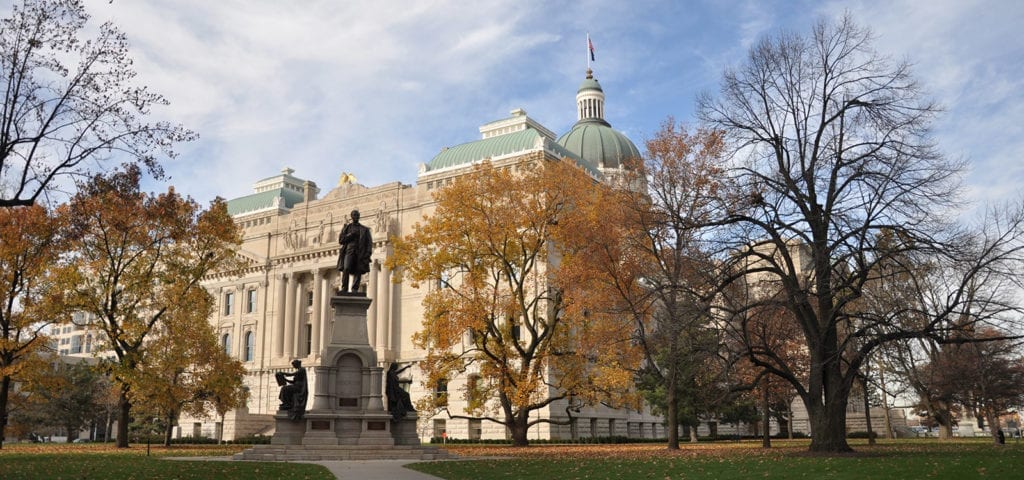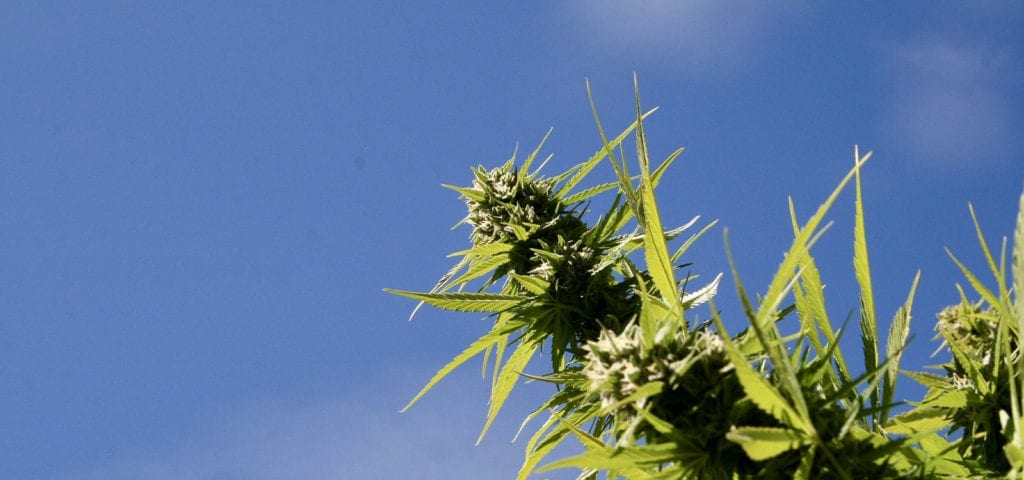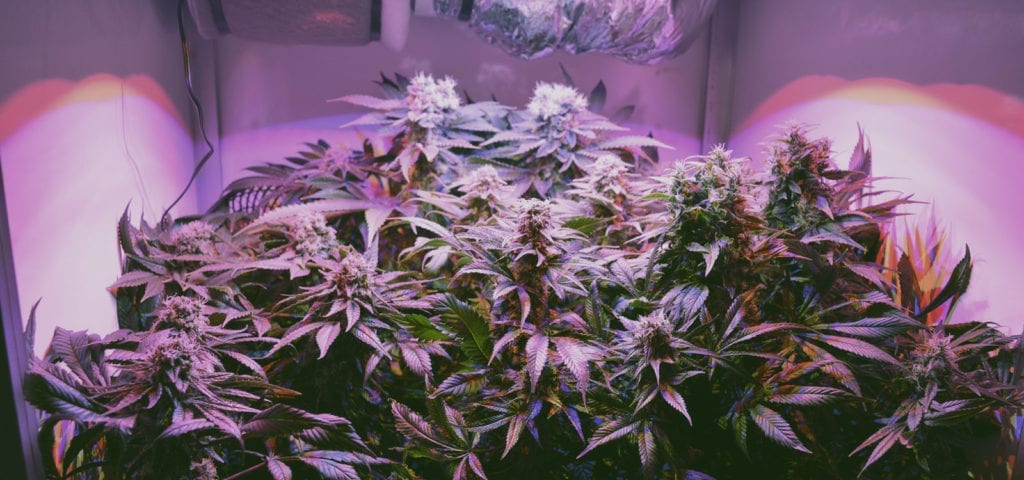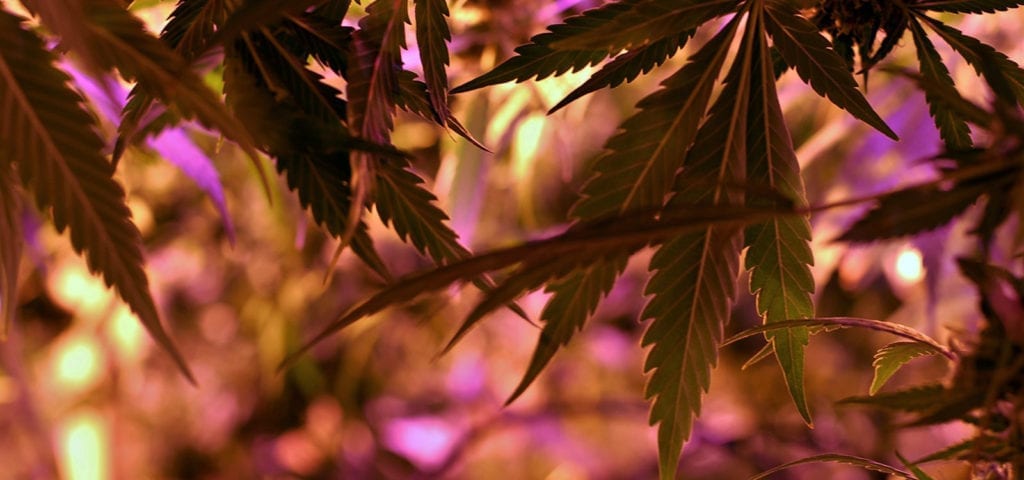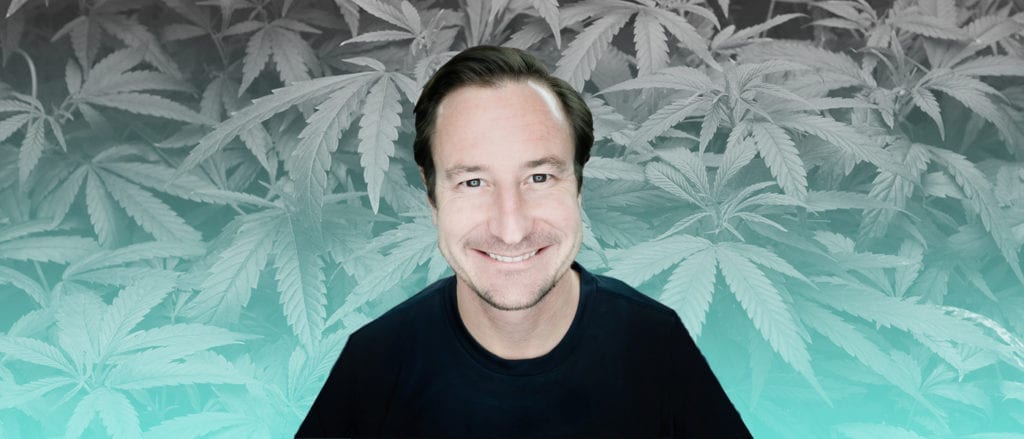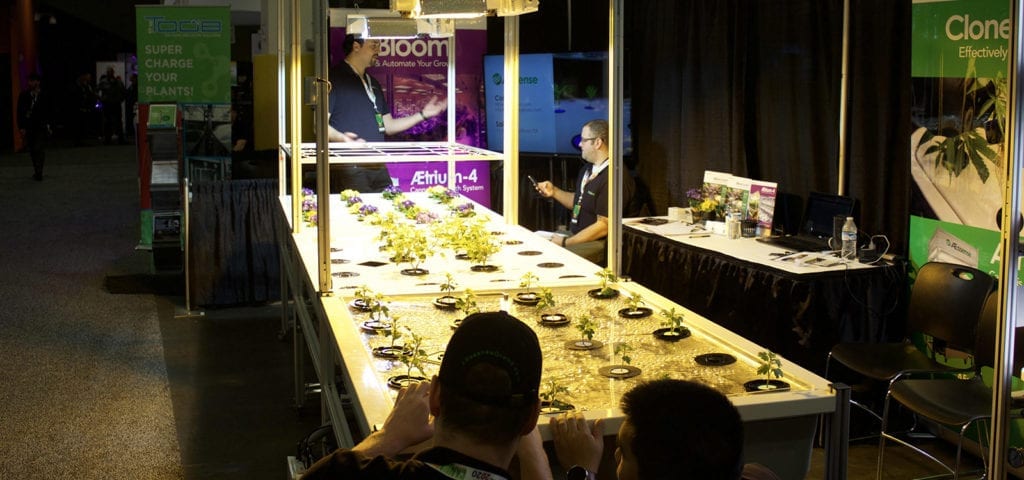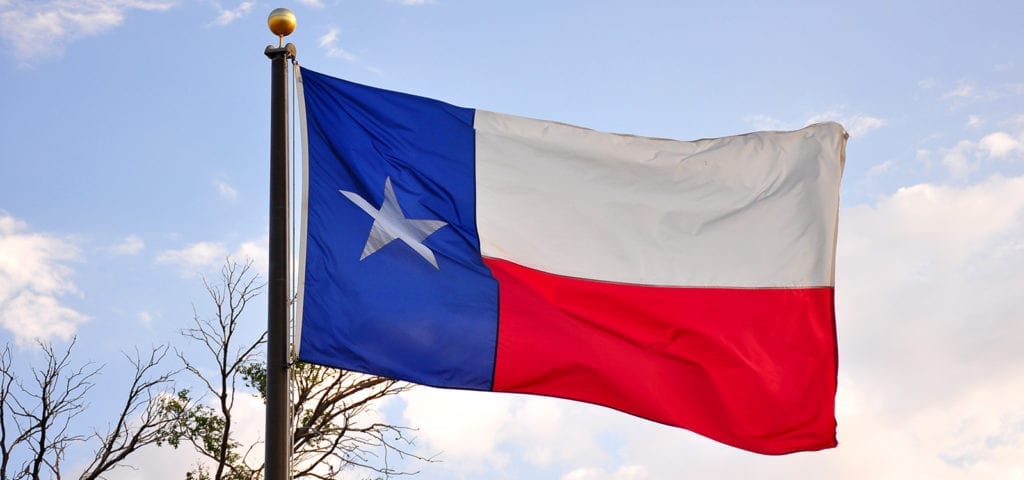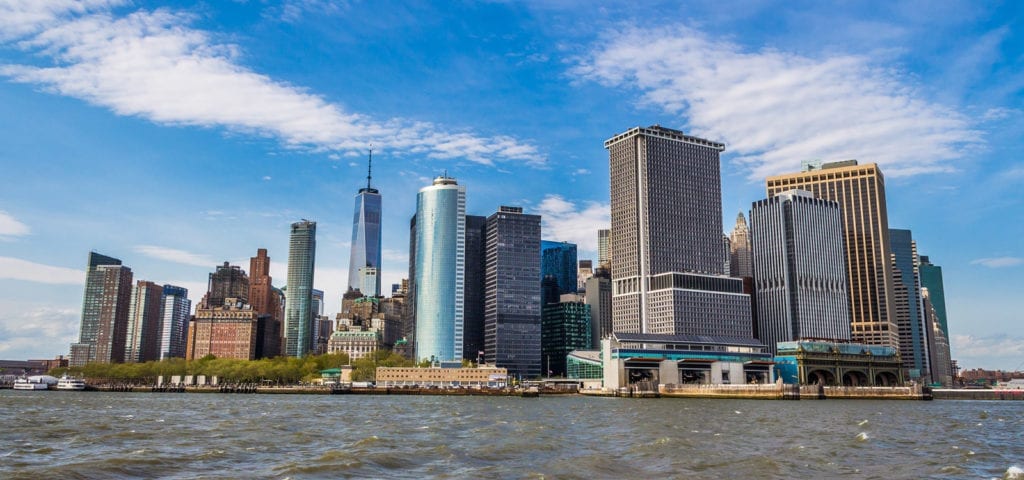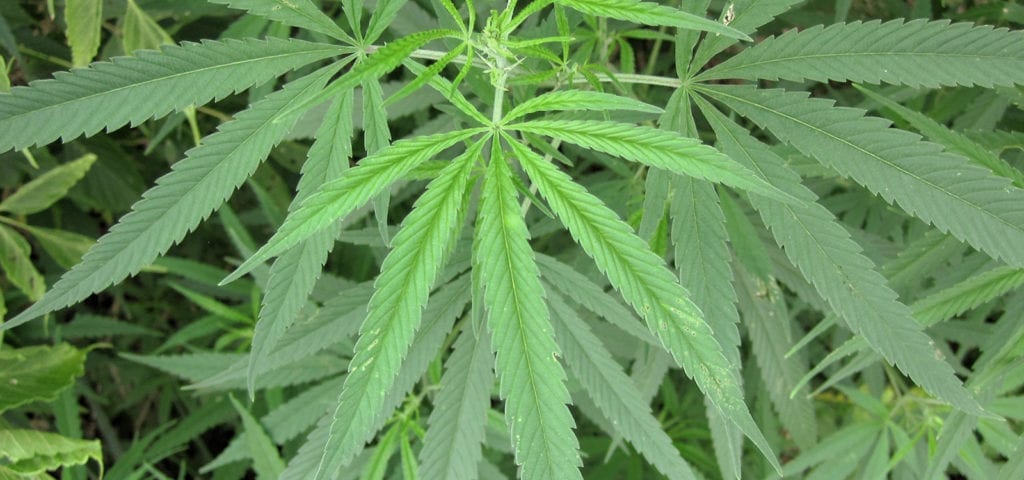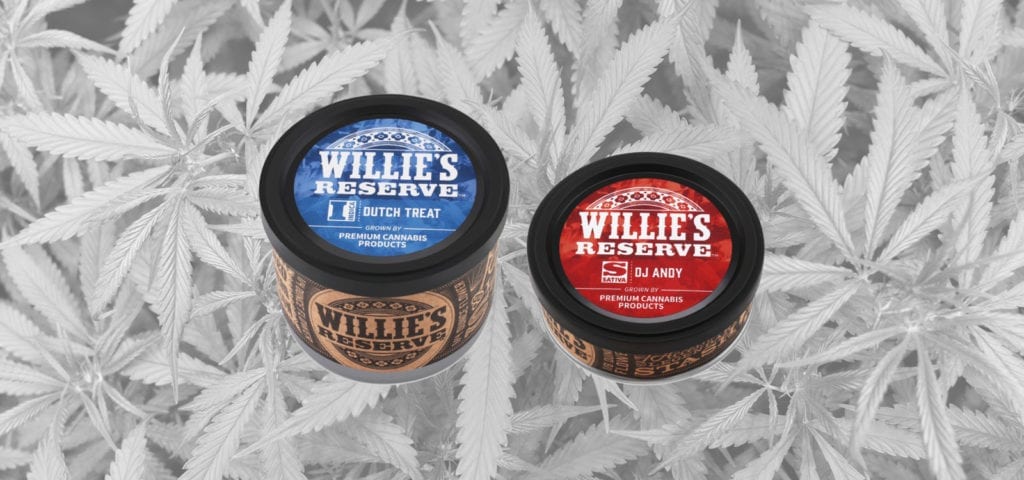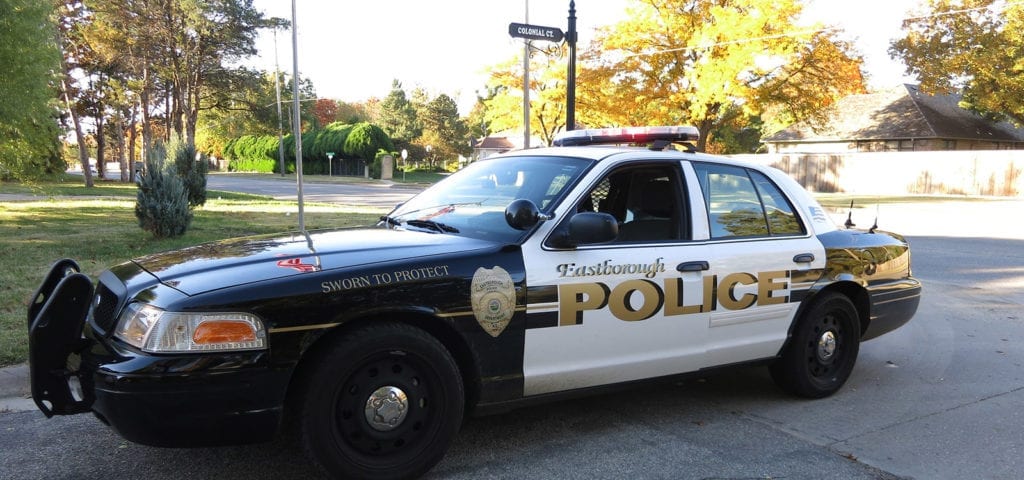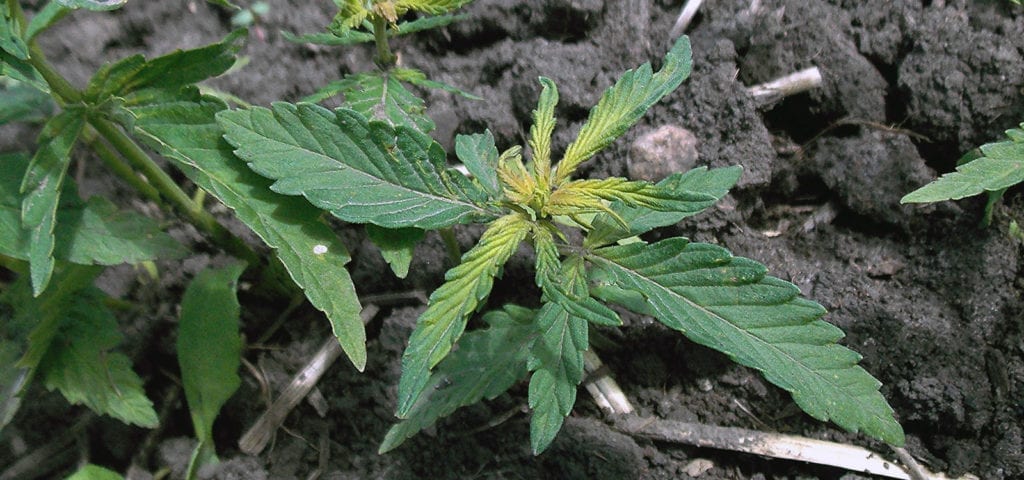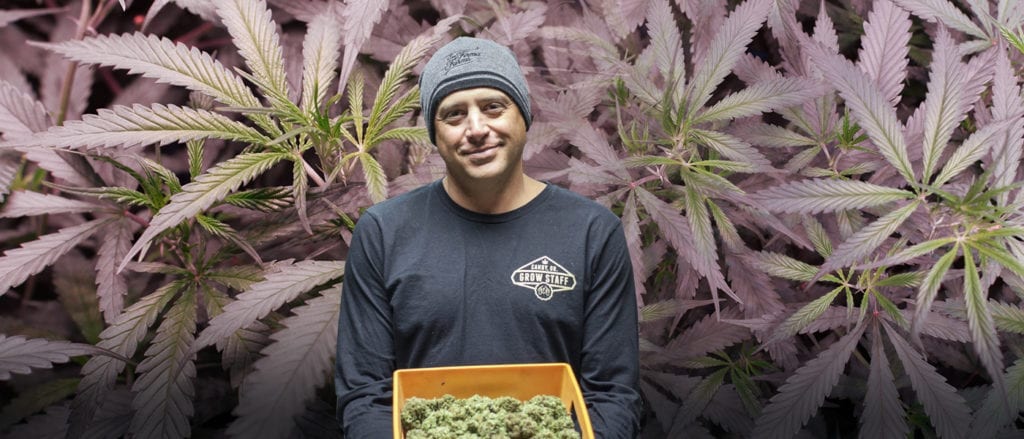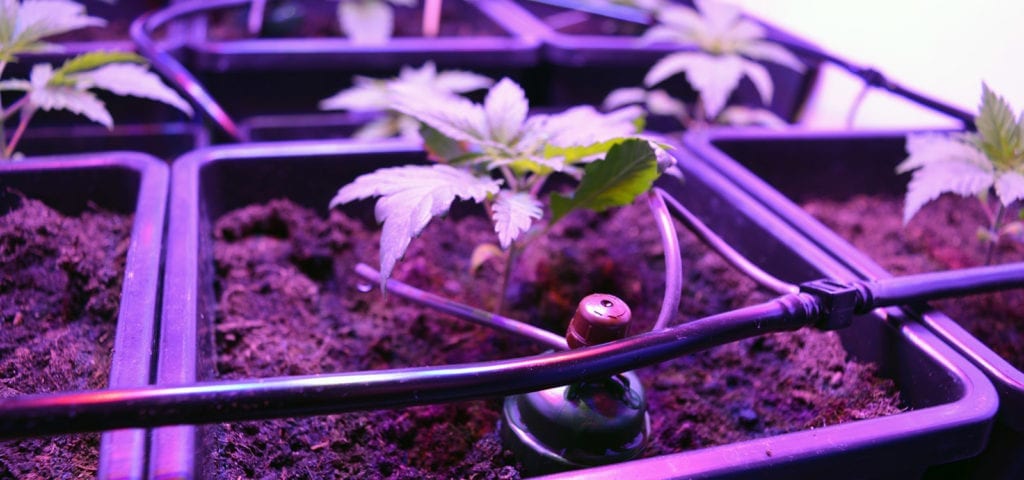Jesse Peters is the owner and CEO of Eco Firma Farms and is a founding member of the Oregon Cannabis Association.
In this Ganjapreneur.com podcast episode, Jesse joins our host TG Branfalt to talk about Eco Firma’s longterm goal of becoming 100% carbon neutral, some green energy solutions that other cannabis companies can consider to follow in their footsteps, how the cannabis industry needs to take responsibility in lobbying for better regulations and working more closely with regulators and lawmakers, and more!
You can listen to the interview via the media player below, or scroll further down to read through a complete transcript of the episode.
Listen to the podcast:
Read the transcript:
TG Branfalt: Hey, there, I’m your host, TG Branfalt, and you’re listening to the Ganjapreneur.com podcast where we try to bring you actionable information and normalize cannabis through the stories of ganjapreneurs, activists, and industry stakeholders.
Today, I’m delighted. I’m joined by Jesse Peters, he’s the CEO of Eco Firma Farms, and he’s a founding member of the Oregon Cannabis Association. How are you doing this afternoon, Jesse?
Jesse Peters: Good, good, how are you doing, Tim?
TG Branfalt: I’m all right, man, as I said, I’m thrilled to have you on the show, we’ve got a lot to talk about, but first, I want to talk about you. You have an interesting background, you are a 22-year Marine Corps vet, 10 years as a professional firefighter. How did you end up from those two sectors into the cannabis space?
Jesse Peters: Honestly, I didn’t really come from those two sectors in the cannabis space. I’ve always been on the cannabis space, and went into those two sectors in life. To an extent, I was born into this industry. My mom took the misdemeanor, and my dad took the felony for the five pounds that were under my crib when they brought me home from the hospital. That’s where our established in 1974 comes from. It was just always a piece of my life. I’ve always been a part of cannabis in a real small way, and then, as I got older, I just lived in both worlds.
I went to school, I went to college, I joined the Marine Corps, I got a job as a firefighter, and I also was in the cannabis space doing cannabis things that most cannabis people have done for a very long time. Years ago we started figuring out that it was going to be legal in our lifetime, and we needed to make a decision on which route we wanted to take with it, and taking the route of developing a company, and trying to participate heavily in the end of prohibition, and still be a successful business was the route we chose.
TG Branfalt: How long ago was it that you started Eco Firma?
Jesse Peters: Eco Firma was registered as a company in, I want to say 2013. We started Eco Firma as brand back in about 2011, 2010 actually, up in Seattle, when it just … It was one of those things where you start going into dispensaries, and you realize that it’s still really raw, it’s just random people coming through the door with Ziploc bags, or sandwich bags, or garbage bags full of cannabis. To me, the only to stand out there was to start to represent something.
We decided, you know, we’re going to create a business name, and we’re going to actually start giving test results, and doing terpene profiles as soon as they came online and we were allowed to do with no requirements. We wanted to be presentable and just have that leg up on the competition that I was facing in the dispensaries. As we did that and started getting really specific with strains and really specific with branding and trying to offer more to drive traffic to your dispensary made things appropriate for us to start to function like a business, and to be able to earn that business of that dispensary. If you’re going to turn it into a business, then you’ve got to turn it into a business, so what’s what we did.
TG Branfalt: One of the principles of your farm is this idea of total carbon neutrality. Can you just describe to the listeners what that is first, and why you decided to bring your farm in this direction, and why it was important to you?
Jesse Peters: Yes. Total carbon neutrality is the ability to say that we put absolutely no extra carbon into the atmosphere. Any CO2 emission, the power that we use creates CO2, recycling, garbage, we want to create zero CO2. We want to leave the planet better than we found it. We want to leave our property better than we found it. We want to be neutral balance with how the planet should function. It started with we looked into green energy and actually have the ability to take on 100 percent wind power, which totally blanked our power for carbon neutral. We took the first 90 percent out right then, the ability to go carbon neutral. We were, as far as I can tell, the first company in Oregon to actually get an award from Portland General Electric as a cannabis company for our efforts. We get fact sheets every year that show the equivalency of how many cars we’ve taken off the road and how many trees that we’ve planted.
Once we hit that, it’s when it occurred to me, you know, I want to be 100 percent clean, so what else can we do? How do we get better? How do we tidy up that last 10 percent? That last 10 percent is a big hurdle. There’s a lot of pieces to go down that rabbit hole with. If we produce any garbage, where does that garbage go? There’s a truck that shows up here that picks that garbage up that burns fuel, so how do we get rid of all our garbage? How do we do only recycling? How do we get rid of if we use an electric forklift instead of a gas forklift that’s charging off of our carbon neutral power? I think you can rapidly see how fast that last 10 percent is a big endeavor, and so we’re trying to bite it off in appropriate stages and chunks, but being able to get rid of our power was a big deal. The next step is that we’re actually going to put a solar array up and start trying to feed back.
TG Branfalt: In addition to those couple of ways that you mentioned, what are some, I guess, more simpler ways that operators in this space can work to reduce their own carbon footprints?
Jesse Peters: You know, I would say, for one, look into green energy. That is, by far, the biggest. A lot of states have an option for you on your power bill that you can just call the phone number and ask, “Hey, I really want to look into green energy options.” That’s a big step. It doesn’t cost that much more capital to be able to do it. Every company in every state is a little different, and some have the option and some don’t. Fortunately, here in Oregon we have a great option. If you don’t have that option, then you’ve got to start looking towards all the little things. Start small. Set up a really good recycling program, maybe some incentives for your employees. Make it really easy to recycling, separating the glass, putting out containers, all the small pieces. Look into don’t use bottled water. Make sure that if you do have people that bring in bottled water, that you have a recycling receptacle there for the bottles. Buy your staff water and put it in the facility. Buy them containers that they can carry their water in. Look around your office at the things that you’re throwing away that you waste and see what could be replaced. You can start that small and then just build on it.
TG Branfalt: That’s really great to hear that from somebody who has a big operation and is so active in eliminating the carbon footprint. I know that as California comes online, there’s a lot of sort of chatter about the water use and the energy use in a state that’s already sort of strained in that regard.
I want to talk to you a bit about the Oregon Cannabis Association and your role with that. When did you realize that the time was right for a dedicated industry association, and how difficult was it for you to get, now you have more than 100 businesses on board?
Jesse Peters: Really, the credit for that realization goes to Amy Margolis. Amy Margolis was an attorney in the space early on. I think we’re approaching … She’s been in this space for a very long time. For the Cannabis Association, early on three or four years ago, it occurred to Amy that we needed an association, that there were a lot of us out there that were still in that world of being very reclusive. It’s the world we came from. Being that she knew all of us and many of us used her as our legal advice, she brought up to a group of about eight of us that we should all come together as the Cannabis Association. She actually had reached out to Matt and Meagan Wallstater, who own a dispensary called Pure Green here in Oregon. Matt and Meagan, it was also a dispensary that we marketed to, and so they approached me and said, “Hey, we’re putting together this group.”
At the time, we didn’t really know what it was. It was just let’s put eight of us in a room, and nine of us, and 12 of us, and let’s talk. I’m not going to lie to you, there’s a lot of ego that comes out in those first talks, a lot of posturing that was really interesting. There was some really entertaining conversations that went down, and then everybody really fast got comfortable with each other and you can start to see a divide. There’s staunch competitors that view everyone as their competition, and then there’s those of us that are in cooperat-ition. We’re stronger, as a whole, especially as such a young industry that does not have those heavy corporate influences quite yet. If we band together, we might be able to sustain and create rules and create and industry where we do have staunch pesticide regulation and staunch mitigation for things like water usage and things like power usage. We can set up an industry that doesn’t look as much like our food industry.
As we kind of went down that path, we looked towards legislation and how do we lobby for free market space so that small businesses can attempt to thrive? How do we try to make sure the medical program doesn’t die? You start realizing that as the association grows and more and more members join, that you have to start separating things out. You form a board and you bring on a separate wing that is just the political action committee. Slowly, but surely it has been morphing and growing into, at least here in Oregon, a movement that I hope to see progress throughout the country.
TG Branfalt: When you mentioned the lobby, you mentioned the Oregon Cannabis PAC, the political action committee. When did you decide the time was right for that project?
Jesse Peters: Once again, definitely not me deciding. This was a … That room, that group of eight, that turned to 12, that turned to 50 and Amy Margolis and all of the members within it, all of us discussing the fact that we should go to DC and lobby for things like the big ticket items, like banking reform and tax reform. There’s a lot of pieces to bite off here. There’s a lot of prohibition. There are people still going to prison for long periods of time. How do we … In a state where we can dedicate some of our resources, financially, into a lobbying effort to help states that still need to get past that, how do we participate? How do we use those resources in a way that benefits the industry as a whole throughout the country? That’s really where it was born from, and we’ve just kind of been going from there, winging it, for lack of a better term.
TG Branfalt: Are you guys seeing donations from companies outside of the cannabis industry, with regard to the PAC, yet?
Jesse Peters: Not quite. We’re getting just a little bit here and there. We’re starting to see ancillary companies come in and we’re just starting to reach out to those ancillary companies, because, to be honest, it takes a lot of revenue being generated in a legal market before you start to see companies that supply CO2 or make the equipment that goes into extraction equipment that sees a large enough market share that they are willing to put some capital into it to help support that revenue stream for their company. It needs to obviously hit a specific number for their ROI to be justified. Once again, in a legal state, as you see these things come online and that revenue stream becomes appropriate, you kind of need a group to hit them up, otherwise they’ll skate along and us, as cannabis companies, will continue to fund our own events to try to get our names out there until we can get to a point where it is not financially responsible as company for me to advertise to a bunch of other companies in my same space that already know who I am.
Why don’t we reach out to companies that make nutrients or companies that make lights, Gavita, Advanced Nutrients, Biobizz, start reaching out to them that are still in the space, but in a larger capacity, and then slowly but surely, we reach beyond that into companies that provide signage and banners, or companies that do printing, or companies that provide CO2 or gasses to the industry. I think that, from there, you can start to span wider and wider to try to bring that capital in to support our cause.
TG Branfalt: What’s your relationship like with the lawmakers in your state specifically?
Jesse Peters: It’s been good. The hardest part, I would say, for the lawmakers, and for us, is that they have a very fractionated voice coming at them from many different associations, many different organizations, many of their constituents that all have their own pieces that they want. Of course, outside of that, you’ve got some very self-motivated interest groups that can put capital into this space and lobby for their own specific purpose. If you’re a legislator, it gets murky. If you’re a rulemaker, it gets murky because who has got a hidden agenda? What agenda do I want to follow? What benefits my constituents the best?
For us, fortunately, here in Oregon, we’ve got lawmakers that are, for the most part, really supportive of this industry, but they’re also very new to it. I would say to California and other states as they come online, you’re going to see a lot of rules that don’t make sense. My advice is definitely don’t attack your legislator. You want to work with them, because they want to work with you. It’s just a really difficult job. But when the rules first come online, comprehend that they’re going to be the hardest, most likely, that they’ll ever be, because they’ve got to cast a wide net and then, slowly but surely, a good organization, with a good mission statement, can slowly start to narrow that reach and make legislation and help work with legislators to make rules that are beneficial to companies and allow for a thriving market.
TG Branfalt: I want to talk to you a bit more about your lobby efforts in DC, but before we do that, we’ve got to take a break. This is the Ganjapreneur.com podcast. I’m TG Branfalt.
If you are looking for a job in the rapidly growing and highly competitive cannabis industry, Ganjapreneur.com is the place to look. Visit the Ganjapreneur job board today to browse current openings with cannabis companies throughout the United States, from empty level budtender positions to executive level career opportunities. You can also create a profile and upload your resume to be discovered by cannabis recruiters. Visit our job board at jobs.ganjapreneur.com to create your profile today.
If you are a business owner, you can post your job openings for as little as $25 on our job board to reach the largest and most engaged audience of cannabis professionals on the web. Companies who are listed in the Ganjapreneur business directory are eligible for free job listings. If you’re already signed up, contact us today via the website or send us an email at grow@ganjapreneur.com to activate your unique coupon.
TG Branfalt: Hey, welcome back to the Ganjapreneur.com podcast. I’m your host, TG Branfalt, here with Jesse Peters, CEO of Eco Firma Farms. In June, members of the OCA went to lobby in DC and came away with four takeaways: the Trump administration has bigger fish to fry, GOP freshmen realize that the War on Drugs is lost, the industry needed more representation from both lawmakers and from operators, and Congress is not “just blowing smoke” when it comes to diversion of product and recognizing the benefits of a taxed and regulated industry. That’s a lot of stuff that you guys sort of came back with in your sort of report. What’s your game plan for addressing some of these issues? Are operators in your state actively prepping for any sort of federal crackdown?
Jesse Peters: To answer the last part, prepping for a federal crackdown, to be honest, until it’s federally descheduled, you should always be prepping for a crackdown. You never really know, but I think those of us that have been in this space a long time comprehend that it’s the risk of doing business, and there’s a benefit to it as well. That risk keeps a lot of the big corporations out and gives us the opportunity to get a head start, to set up and thrive. If you’re risk adverse, this isn’t the space for you. That being said, to be prepared for a crackdown is nothing more than to say, “I comprehend that someone might kick my door in tomorrow.” Other than that, on the larger scale, it’s like shooting a BB gun at a freight train. At this stage, and especially with California coming online, it’s not at the forefront of our concern.
When it comes to kind of the large agenda facing at least the OCA at this stage in the game, looking towards Capitol Hill, there’s good and bad with it. This new administration is definitely not our friend. Jeff Sessions has been extremely vocal about his intent over the years. We could go really far down the rabbit hole politically with this if we wanted to, but on the optimistic side, there is a grumbling here that requires action from our representatives in the Senate and in the House. It was really nice, for the eight years of Obama, to pretty much feel like we’re status quo and we don’t have to really worry, but on the same hand, we were at the bottom of their agenda list. Now that we have an administration that has come out to basically actively pursue negative regulation in our realm, it is forcing a lot of our Congressional leaders to stand up and start actually making laws to prevent that.
In the boomerang effect with this administration, there’s potential for us to still get a little benefit there. It’s definitely not a reason to stop fighting. It’s by far not a reason to stick your head in the sand. Now is the time that, in a country where more Americans approve of cannabis than apple pie, we’ve got the numbers behind us. We just need to get that voice directed towards our leadership, because the midterms are coming and there are a lot of people that are spooked for their jobs, so they’re listening. It’s on us to take advantage of that.
TG Branfalt: So let me ask you this. What is stopping the … What is the driving force behind the prohibitionists in your sort of experience as somebody who has went to DC, who has lobbied, who has these military ties? What is the issue here? What is your sense about what is stopping them from just allowing it to become legal in their state, or pressing for federal deschedulization or reschedulization. I’m a deschedule guy. What is your sense about all this?
Jesse Peters: Yeah, I’m a deschedule guy as well, by far. You know, honestly, I think, for me, it’s the squeaky wheel gets the grease. When we go all the way down to things at the county level, when we go to a county meeting to actively pursue things like processing or extraction on EFU land, when you show up, you’ve got two or three or five people from the cannabis industry that are trying to speak in an educated manner about how the revenue and the tax model and the regulation can benefit the society, and then you’ve got 50 anti-cannabis people who tend to be in more of a retired age of life and have the time to come down to this and print banners and print signs and be very loud and lobby very heavily against any cannabis descheduling or against beneficial regulation.
If you’re sitting there as a councilman or as a Congressman, and you’ve had 300 phone calls against and three phone calls for, it seems to you as though this is not as popular an issue as you think. Well, the reason you only get three phone calls for is because most of us are working to build a business and don’t have the time to attack this from every angle. I think it’s a perception issue, honestly. It’s a perception at the legislative level where you have a louder voice from a smaller group, and that changes your perception of what is really going on in the country.
TG Branfalt: You mentioned a louder voice from a smaller group. I want to talk to you quickly about some of these veterans access issues. You’re a veteran yourself. The VFW has come out and they have supported medical cannabis access for veterans. There’s not a legal state that a veteran can walk into their VA, even if it’s legal in their state, and say, “Hey, we need to explore medical cannabis for my chronic pain, my PTSD or what have you.” Can you tell me a bit more about, from a veteran’s point of view, how important this issue is or is going to become as the market matures and as we get more research?
Jesse Peters: Yeah, I think it is a tough nut to crack, and it’s also, to me, one of the most ridiculous arguments out there. You’ve got groups like Grow for Vets and Weed for Warriors that are really working extremely hard on these issues. The fact that you can go out and be shot at for your country, that you can come home a different human being, and yet you’re not responsible enough to consume cannabis, yet you can become addicted to a host of medications that are freely given out is ridiculous. It’s a conversation that shouldn’t even be a question. It’s a no vote out of a Congressman or a Representative that should be staunchly … It should be … How do I say that? It should be looked at very seriously, because it’s not an issue that should be swept under the rug or pushed off to the side.
That being said, medical research is … No matter what we do, obviously as this industry grows, medical research is going to grow with it. In what direction … Is Pfizer looking for their next big moneymaker? Do you want to go down the rabbit hole of conspiracy and addiction and how do we manipulate that, as a drug company, for profit? I think everybody has a statement they can make there. I think it’s the base issue. I think it’s really easy to cloud, and I think it’s the base issue. There are veterans that need access, or prefer access to cannabis, rather than access to narcotics or anti-depressants. There is absolutely no reason why that should be denied whatsoever. End of story. Everything else is just noise.
TG Branfalt: You’re very passionate when you speak about that, and I really appreciate your candor in addressing that issue. I want to talk to you a bit more about Oregon and some new rules that took effect there, but before we do that, we’ve got to take a break. This is the Ganjapreneur.com podcast. I’m TG Branfalt.
At Ganjapreneur, we have heard from dozens of cannabis business owners who have encountered the issue of canna-bias, which is when a mainstream business, whether a landlord, bank, or some other provider of vital business services refuses to do business with them simply because of their association with cannabis. We have even heard stories of businesses being unable to provide health and life insurance for their employees because the insurance providers were too afraid to work with them. We believe that this fear is totally unreasonable and that cannabis business owners deserve access to the same services and resources that other businesses are afforded, that they should be able to hire consultation to help them follow the letter of the law in their business endeavors, and that they should be able to provide employee benefits without needing to compromise on the quality of coverage they can offer.
This is why we created the Ganjapreneur.com Business Service Directory, a resource for cannabis professionals to find and connect with service providers who are cannabis-friendly and who are actively seeking cannabis industry clients. If you are considering hiring a business consultant, lawyer, accountant, web designer, or any other ancillary service for your business, go to Ganjapreneur.com/businesses to browse hundreds of agencies, firms, and organizations who support cannabis legalization and who want to help you grow your business. With so many options to choose from in each service category, you will be able to browse company profiles and do research on multiple companies in advance so you can find the provider who is the best fit for your particular need. Our Business Service Directory is intended to be a useful and well-maintained resource, which is why we individually vet each listing that is submitted.
If you are a business service provider who wants to work with cannabis clients, you may be a good fit for our Service Directory. Go to Ganjapreneur.com/businesses to create your profile and start connecting with cannabis entrepreneurs today.
TG Branfalt: Welcome back to the Ganjapreneur.com podcast. I’m your host TG Branfalt here with Jesse Peters, CEO of Eco Firma Farms and one of the founding members of the Oregon Cannabis Association. In Oregon, you guys face rule changes all of the time. How does your company deal with this evolving regulatory structure?
Jesse Peters: Yeah, I would advise anyone who is coming in to a recreational market or even coming into a medical market, you need to get very seriously involved with the legislature and the rulemaking authority. Start making friends, start being well known, because you’re going to see a system get set up and they’re going to create rules for the entire year leading up to it, like California has been doing, and then it’s going to come online and all of those complaints from the city, from the municipal, from the county, from the state, from the testing labs, all those lobby groups, all those special interest groups, they’re all going to jump in and they’re going to want to change rules.
To be honest with you, sometimes those rules wind up going backwards. We’ve dealt with it here where we’ve had testing regulation come in and go in a direction that made testing so difficult that it coffin-nailed our industry for about four months. Then you see the legislature realize that and the rulemaking authority realize that and then they come back and change them again. The hard part about that is those rule changes, for small businesses, mean you have to throw away $25,000 worth of packaging because you had it made for one set of rules and now it’s made for another set of rules. You have to change your strategy for your lean flow at your facility. You need to add $50,000 worth of security system. It’s an ongoing methodology to refine rules. As I said, it’s the worst it is when it comes online and it’s only going to get better, but that graph is not linear. That graph goes up and down. As that regulation gets easier, there are peaks and valleys there that make things better or worse as you go. If you are not there advocating appropriately, with support, your life is going to be very difficult.
TG Branfalt: Are things stabilizing as far as regulations go?
Jesse Peters: They are, actually. You know, we’ve kind of reached a point right now where we’ve hit regulation that everyone can live with for now. It’s almost like a regulatory exhaustion where you get to a certain point where everyone, from the legislature to the governing bodies to the companies, say, “Okay, give me five minutes to just operate as we are and let’s reevaluate and let’s attack some of these small issues first and just let’s make this a little easier.” The constant ebb and flow on a large scale is exhausting, and so we have hit a set of regulation that we can, for the most part, live with for just a minute before we come back at it and try to make it better again. Some of the hardest parts are states that have medical and recreational programs, because the medical programs take a real heavy beating.
For some of those issues, it’s understandable for the state. They have a new administration. They need to meet Cole Memorandum regulation. They need to be able to show to the Attorney General that they are putting forth rules to help the diversion of cannabis out of state so that they can keep their rec program moving and keep the industry moving. Conversely, you need to work in a system that still benefits patients and doesn’t block them out from the medication that they have lived on for so long and the producers that are good players acting within that regulation appropriately to take care of those patients. It’s a very … They’re very muddy waters and it is a very slippery slope, and dealing with this administration within that is extremely difficult.
Like I said, trying to think of all these issues in the big picture for the greater good of the industry, medical and rec, is going to suit you best with a really well formulated plan of how to address these issues. Don’t leave it in the hands of your legislators to figure it out, because they’re not from this space, they don’t know. They need your help, but they need it in a very articulate, well thought out manner that addresses those issues, and we’re the ones that know that, so help them.
TG Branfalt: I want to move on a bit. I watched your Toke Talk in April. During that, you sort of pleaded with your audience to get off of social media if you’re in the cannabis space. Personally, I’m a reporter in this space. My Facebook is private and guarded, I don’t have Twitter, I don’t have Instagram, and people shout at me about my brand, or whatever. Is this what you’re advocating, for people to just get off of these social media platforms, or are you more saying hire someone to manage your social media so you can focus on your business?
Jesse Peters: A little bit of both. Yes, as a business, do not … Social media is your friend. Definitely if you can afford it, and even for your own mental health, hire someone to handle your social media and engage with it appropriately, but it’s kind of that adage, if you do an article, don’t go read the comments. You’ve got to stay away from it. It’s hard when you’re a small, struggling business to then jump onto Facebook and Instagram and you see all the other companies that are doing their marketing on social media. It makes you feel very small. It makes you feel like you’re not making it. I’m not making it. I’m not there. I’m not progressing. It can get really consuming. There’s proven fact for serotonin and social media and instant gratification and dopamine and you then add in your business structure, your personal business structure, and you’re watching these other companies that are touting to be what they want to be, that they’re living their company on social media the way a lot of people live their life on social media. It’s exhausting. Eyes on your own paper. Social media is great for advertising and you need to use it appropriately, but do not let it consume you and depress you as you move forward and work to build a business, because it will do exactly that.
TG Branfalt: So in your state, do you guys have a lot of advertising options? I know in lots of medical states there’s no advertising, such as New York. I know for a lot of people that’s all they have, really, is social media, internet ad buys. Do you guys have a lot of these sort of more traditional options in Oregon?
Jesse Peters: We do. We’re allowed print ads. We’re allowed billboards.
TG Branfalt: Do you find these effective, the traditional ways?
Jesse Peters: To an extent, yes. The ROI is a little difficult to track right now in some aspects, so some of it is just more brand recognition and your marketing strategy for how well you want that brand recognition, but it’s twofold. You need the brand recognition for the B-to-B, but you need the brand recognition for the B-to-C so the C goes into the dispensaries and asks specifically for your product. In a market that is as young as the market we’re in, that is a really difficult thing to track. You know, the most success in small market marketing, like the cannabis industry, especially if you’re a smaller company, is that guerrilla marketing, that person-to-person, on the ground, sticker placement on the drive-through at Taco Bell, the giving away of stickers in the right scenarios. There’s a million guerrilla marketing tactics you can use that are extremely inexpensive that can help get your name out there. At the end of the day, the reality of it is it’s a lot of work. It’s a lot of creative time and a lot of work and you’ve just got to put your head down and get to it if you want your name out there and that’s all there is to it.
TG Branfalt: I love the idea of guerrilla marketing. I saw a lot of that, actually, in Michigan where they had a gray market and very limited, in terms of … The businesses, the dispensaries weren’t even licensed, but when I went to Cannabis Cup, they were just handing out stickers left and right and then a couple of days later, I see those same stickers all over Detroit. It wasn’t for dispensaries, it was for brands to your point. What is next for Eco Firma? You guys are … You’ve been doing this since 1976. What’s next for you guys?
Jesse Peters: Yeah. Making sure that everything is just clear out there, ’74 is the year I was born, so it just kind of goes more around the anecdotal story. We’ve been doing this for a very long time, but not since I was a baby. I don’t want to mislead anybody.
What’s next for us? You know, just like everybody else in this space, expansion. We want to go down that whole large scale vertical integration track. We want to coordinate and bring together the companies that are the best of the best. We want to potentially consolidate with those that make really good partners here and in other states that maybe need a little help, and maybe they’re the right player. There’s an unknown quantity — a large unknown quantity of businesses out there that I think probably are really good operators, but no one has heard of and may not, if they don’t get the right boost. We’re going to look down the track at those opportunities to build as a brand, to build as a company. We’re bicoastal now. We’re here. We’re in Maine. We want to span out to California. We want to span out to Nevada and Arizona. We have a lot of opportunities on our very short horizon that we’re looking at.
We, like everyone else, we want to make a real big dent. We want to be really well known on a national level. I think it’s an appropriate goal and we want to do it right. We want to be clean. We want to be good partners. We want to be good neighbors. We want to be good humans. I had a good friend from TJ Gardens say to me one day, on a plane, “I don’t want $100 million. I want to make 100 millionaires.” I like that theory. I want to do that.
TG Branfalt: So what’s your advice for entrepreneurs, people who might not be in this space yet, or just people who are looking to make their own dent?
Jesse Peters: Run. This is a great space to be in. It is an extremely difficult space to be in. Do not come into this lighthearted. Do not come into this halfway. Do not come into this thinking that you’re going to jump up out of nowhere and take four plants in your basement or a couple of lights and just go find someone to hand you a million dollars. This is a really, really tough space, and if you’re going to come into it, you need to come into it full bore, guns blazing and ready to work long days, long hours, very little vacation. It’s hard work, but it’s gratifying work, because as you expand, you get to bring people into your fold and employ people and partner with people that their goals, their life, their career hinges on your company’s success. It’s really gratifying to be able build a really big, well functioning team and work within that space. If you are risk adverse, lighthearted or not ready to work that hard, this might not be the space for you. If you are and you are just starting out, or you’ve been doing this a while, but you’re ready to come at it, don’t hold back. You need to come at this full force. That would definitely be my advice.
TG Branfalt: That’s really, really great advice. I hear that echoed a lot where a lot of people enter this space thinking they’re going to be a millionaire in six months and that’s just not the case. You’ve echoed what I’ve been hearing, as a guy who has never grown a plant in his life, from other guests and other interviews I’ve done. Where can people find out more about you and more about your company?
Jesse Peters: You can find us, obviously, on Facebook, Twitter, Instagram, Eco Firma Farms. You can find us on our website at EcoFirmaFarms.com. You obviously can find information on the Oregon Cannabis Association at ORCannabisAssociation.org. We’re also members of the Craft Cannabis Alliance. You can reach us through any of those avenues. You can email us at info@EcoFirmaFarms.com. And you can listen to our podcast and search us on the Googler.
TG Branfalt: Well, Jesse, I really appreciate you taking the time out. I know you’re a super, super busy guy, and this has really been a fun conversation. You have a lot of experience that I haven’t had on this show before, so I really appreciate you taking the time.
Jesse Peters: I greatly appreciate you giving me the time. I really respect what you guys do out there. I appreciate it, Tim.
TG Branfalt: You can find more episodes of the Ganjapreneur.com podcast in the podcast section of Ganjapreneur.com and in the Apple iTunes Store. On the Ganjapreneur.com website, you will find the latest cannabis news and cannabis jobs updated daily, along with transcripts of this podcast. You can also download the Ganjapreneur.com app in iTunes and Google Play. This episode was engineered by Trim Media House. I’ve been your host, TG Branfalt.
